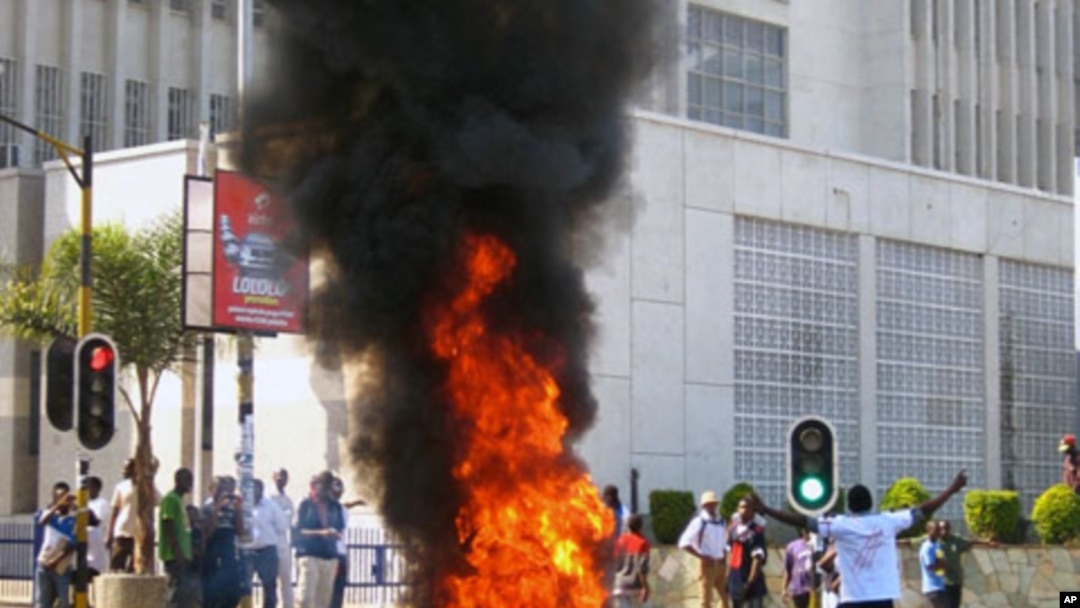When leaders of SADC, the Southern African Development Community, meet in the Angolan capital, Luanda next week, they are being called on to address “the worrying situations” in Malawi, Zimbabwe, Swaziland and Angola.
The call comes from Human Rights Watch (HRW), which plans to monitor developments at the meeting August 16 through 18. It said constitutional rights are under threat in the region.
Malawi
“We’re seriously concerned by, first and foremost, excessive…force that was used by the police here in Malawi in attempting to quell demonstrations on July 20 and 21. And then in the second place, we’re also concerned by the lack of investigation into what took place,” said Human Rights Watch researcher Tiseke Kasambala, who’s based in Lilongwe.
Nineteen people died during those demonstrations.
“There has been to date no announcement by the government of Malawi that there’ll be investigations into what took place at the time. And those responsible for the killings have not been brought to account,” said Kasambala.
Human Rights Watch said rather than investigating, the government has launched a crackdown.
“The government has gone out on the offensive, criticizing civil society groups, who are simply exercising their constitutional right to peaceful protests,” said Kasambala.
Appeal to SADC
HRW has sent a letter to Dr. Tomaz Salomao, SADC’s executive secretary, calling on leaders to respect such rights as freedom of expression and assembly.
“This also ties in with what’s been happening in Swaziland, where the government has also in the past… attempted to quell a plan for peaceful protests through violent means and through arresting civil society leaders and trade unionists. What we’d like to see from SADC is a call upon its governments to allow the people of southern Africa to freely exercise their right to free assembly. They have the right. Southern Africans have a right to go out into the streets,” she said.
Kasambala said there appears to be a “backward trend” in the way leaders in the region react to criticism.
“But at the same time,” she said, “I think one of the positive things we’re seeing out of this is that southern Africans are increasingly going out into the streets and demanding their rights. And we saw this initial phase back in the 1990s when we saw the end of apartheid in South Africa and we saw democratic elections in both Zambia and Malawi.”
Angola
Zimbabwe has received much attention in recent years due to the political turmoil there, as well as the Mugabe government’s takeover of lands used or owned by white farmers. But Angola has not received nearly as much international media coverage.
“It is an increasingly repressive society. And the Angolan authorities have, like the Malawian authorities and the Swazi authorities, clamped down very heavily on the right to peaceful protests. We have also seen the right to freedom of expression and the rights to media freedom being trampled upon by the Angolan authorities,” said Kasambala.
HRW said Angola media are now self-censoring their broadcasts to avoid harassment.
Court rulings
The rights group has also raised concerns about the future of the SADC Tribunal, which has ruled against the Zimbabwe government on the farm seizure issue. The government has been sharply critical of the court and SADC is now reviewing the tribunal’s mandate.
“The SADC Tribunal is a body,” Kasambala said, “which has the jurisdiction to rule over cases that cannot be handled within southern African countries themselves…. What we’re saying is that they should be looking to strengthen the work of the tribunal and not weaken it.”


